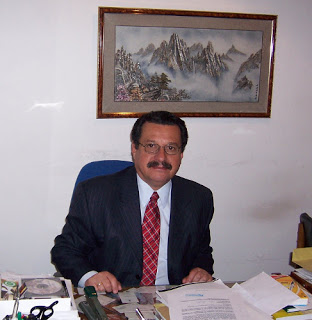The Peace Dialogues in Colombia are a wind of hope for Colombians, who have spent more than five decades living in a conflict which has soaked their land in blood and pain. The following is an interview with Carlos Lozano Guillén, Marcha Patriótica’s spokesperson, newspaper editor and a consultant for previous peace dialogues, conducted by Fernanda Sánchez Jaramillo, a Colombian journalist and union advocate based in Vancouver, Canada.
FSJ: You were in Havana recently. Who did you meet with and how was the atmosphere there?
CLG: I met with the FARC delegates before the pause on the peace dialogues and everything is fine. I also met with Humberto de la Calle, the government’s delegate, in Bogotá. Both parties had a constructive attitude towards the peace dialogues and it makes me feel confident about them overcoming their differences.
FSJ: One of the biggest criticism to the current peace dialogues is the lack of civil society participation. Do you think that the government and guerilla will open spaces for it?
CLG: Yes. One weakness of this process is the minimum space offered for social participation. However, two forums, agriculture and political representation, and the regional peace meetings allowed some participation; the outcomes of it were interesting solutions to the problems debated in Havana. We are waiting to see if they will include these recommendations in the final agreement.
I also believe that wining more space depends on social organizations [putting] pressure on the delegations. The dialogues in Havana were not organizad to solve either the guerilla or the goverment problems, but social problems.
FSJ: Are rallies and strikes, like the recent national agriculture strike, a way to pressure for civil society participation in the peace dialogues? Should the pressure continue until the goverment responds to their demands?
CLG: Yes, it is critical because without social mobilization peace won’t be possible. The guerilla and the goverment have two different views of the country; they won’t be able to resolve everything because of their contradictions. Therefore, civil society participation plays an important role in defending the peace dialogues and helping both parties to understand that citizens have the final say. Even the two forms for ratification of the final agreement, referendum or Constituent Assembly, will express citizens will.
FSJ: In your book Peace is Possible, you said that the FARC should support social demonstrations. Isn’t is difficult to say this in Colombia, where protests are always accused of being infiltrated by the guerilla?
CLG: The argument of guerrilla’s infiltration is old, different goverments use the same idea in order to illegalize mass mobilization. I strongly believe that if we want to atract the guerrilas, we have to open political spaces for them. I would rather see the guerrilla inside the social movement than in the jungle organizing armed actions. Similarly, it will be better to persuade the guerrilla that there is space for its participation and to make changes without weapons. I don’t support illegal infiltration but the guerrilla has the right to comment about these issues.
FSJ: Yes, they are entitled to their opinions because they are political actors…
CLG: Yes, they are a political and armed organization. In view of the fact that the government is negotiating with them, it lifts their label as “terrorist.”
FSJ: You participated in previous peace processes. How confident are you with the current one, taking into account the elite’s opposition to radical changes that would benefit oppressed people in our country?
CLG: It is not easy. There are three perspectives: the guerrilla, the government and civil society. However, I think that this process is different to previous ones; we are working on the agenda. Previous processes failed because they didn’t have an agenda. For the first time, we are discussing [agreed upon] issues and even though the advances are insufficient, this gives me moderate hope. I believe that in a reasonable time, we could achieve peace.
FSJ: Previous peace processes also failed because the oligarchy rejected the idea of agrarian reform, and this problem persists. Also, the dialogues are linked to the coming elections. How negative are these factors on the peace dialogues?
CLG: These are negative factors. The goverment is [a slave of] time; it wants to hold the peace agreement hostage of the [election] because Juan Manuel Santos, the current president, has to decide in November if he wants to run for re-election.
On the other hand, the goverment needs to understand that they are not bargaining with a defeated guerrilla, as well as understanding that without substantial changes, true democracy, social justice and peace won’t be possible.
FSJ: In your book you also suggested postponing the election to continue with the peace dialogues. Would this benefit the process or Juan Manuel Santos’ re-election?
CLG: The peace dialogues achievements and survival don’t depend on the president’s posible re-election, but on people’s ability to defend those from any party in power. The dialogues should continue simultaneously with the presidential election campaign.
FSJ: Would you directly participate in this process?
CLG: Well, I participated in the secret conversations prior to the dialogues. This year, I had meetings with both FARC’s delegates and some government delegates. In addition to it, I visited Havana at least four times this year.
In 2001, during a previous peace dialogues, I belonged to the Dignitary Comission. It was dangerous, I was the target of a bomb that luckily didn’t explode. However, in the name of peace we need to do what is necessary.



